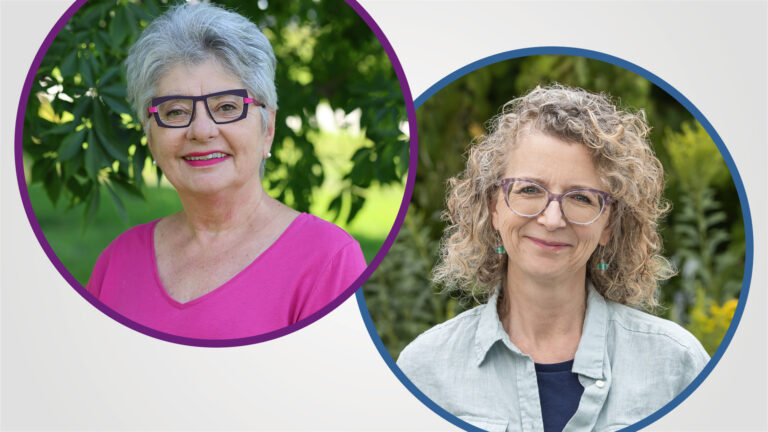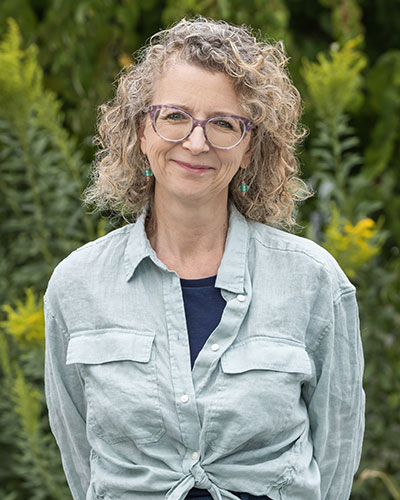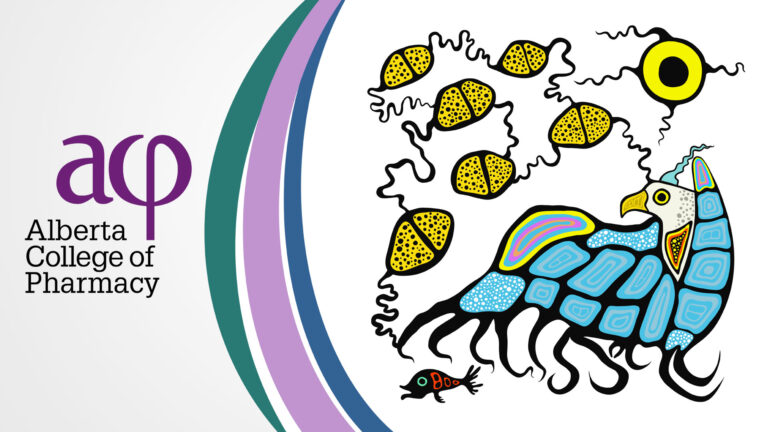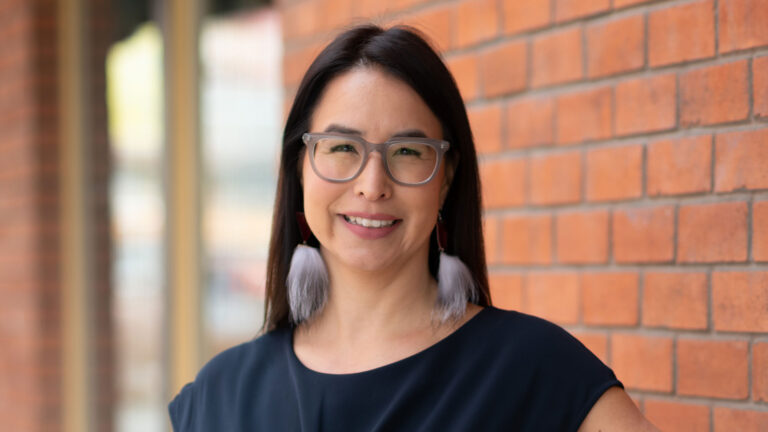
It is ACP’s mission to serve, support, and protect the public’s health and well-being. This mission is foundational to everything the college does. When it came time to develop new standards of practice, this mission was at the forefront, so it was crucial to have the insights and input of patients and the public during the development process.
The insights from members of the public provided valuable feedback about how the new standards could impact patients in their interactions with pharmacy teams—this input helped shape the new Standards of Practice for Pharmacists and Pharmacy Technicians (SPPPT) and Standards for the Operation of Licensed Pharmacies (SOLP).
Two members of the public who contributed to the development and review process reflected on their experiences.

Patricia (Pat) Matusko, is a former public member of ACP Council. Recently, she was presented with ACP’s Honorary Membership award for her contributions to Council. Over the course of her career and through her volunteer efforts, Pat worked in health care, both as a frontline provider and in a leadership capacity, developing health policies and programs. Pat served two terms on ACP Council as a public member.
Beyond her professional expertise in this area, Pat said she was honoured to bring the patient perspective to the table.
“Ultimately, I’m a citizen of the world and a patient,” said Pat. “As patients, we’re not defined by our demographics—I am more than my age, my gender. The new standards really put the onus on the professions to assess me as an individual, and that’s to my benefit as a patient.”

Sue Robins is a senior partner and patient engagement consultant with Bird Comm. She has built her career working in health communications, including patient engagement consulting, feature writing, and health advocacy. She has also authored two healthcare books.
Sue was keen to bring her passion for patient engagement to the table as an advocate and a patient with experience navigating the healthcare system.
“I think a lot of patients, especially those of us who are quite involved in health care for our own reasons, have lots of really great ideas,” said Sue. “I really thought about my pharmacy interactions, the good ones and the bad ones, when I was invited to participate in the consultation process.”
Reflecting on the process, both Sue and Pat felt that their feedback was meaningfully considered.
“I could see some of my comments reflected in the final version of the standards and that was very rewarding—often patients get asked their opinion and then you never hear back about it,” said Sue.
Pat added that the consultation process was constructive and collaborative.
“There was a camaraderie and willingness to contribute new thoughts and ideas—we all had something to offer,” she said. “My opinion is not the be-all and end-all and neither is the next person’s, but together, we can discuss our perspectives and think a little differently.”
Throughout the consultation process, the concept of person-centred care was at the forefront for both Pat and Sue.
“Everything about the provision of pharmacy care relates to the patient first, and so the standards have to reflect that,” said Pat.
Sue added that creating a meaningful dialogue with patients was a key focus as an essential aspect of person-centred care. She said that she was pleased to see an emphasis on communication in the final version of the SPPPT.
“I really appreciated the emphasis on communication being a two-way street and a foundational aspect of professionalism,” said Sue. “As a patient, when I felt seen and listened to, I really appreciated it, so when I was reviewing the standards, I was thinking about how important communication is.”
Pat added that she appreciated seeing how the new standards made clear that person-centred care is the foundation of pharmacy practice.
“You can’t shape the patient to fit the standards—it has to be the other way around. I think person-centred care has always been prioritized, but the new standards go to the next level of clearly stating that everything pharmacy teams do is centred on the person.”
Sue hopes to see more consultation processes in the future that involve meaningful patient engagement.
“There’s a lot of value in talking to the people who you serve and care for,” she said. “As patients interacting with the different facets of the healthcare system, we can see things from a unique, broad, long point of view that I think the different specialties in healthcare can’t necessarily see.”
Looking towards the future for the college and for the pharmacy professions, Pat hopes to see continued growth and progress.
“The new standards were an important part of moving forward, but the progress will continue. There will need to be more engagement and revision and rethinking,” said Pat. “The pharmacy professions have reached an important goal post, but there will be other goal posts to reach, as it should always be the goal to work towards continued growth for the professions.”
Both Sue and Pat shared their time, their expertise, and their lived experiences as patients through the consultation process and their valuable contributions helped shape ACP’s new standards.




